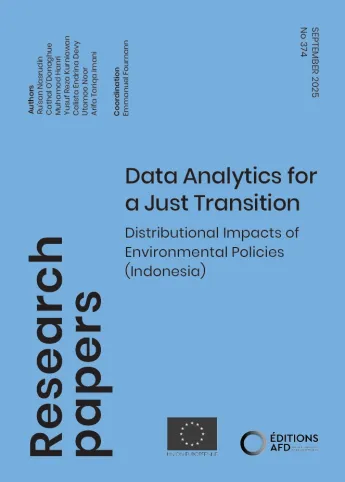Share the page
Data Analytics for a Just Transition. Distributional Impacts of Environmental Policies (Indonesia)
Published on

Indonesia’s commitment to the Paris Agreement has placed carbon pricing through taxes and emissions trading at the center of its climate policy. These instruments are designed to reduce greenhouse gas emissions and encourage investment in cleaner energy, yet they also carry the risk of uneven social impacts. Low-income households and workers in carbon-intensive sectors are especially vulnerable to higher energy costs and employment shocks. This paper applies a
microsimulation framework that combines household survey data with fiscal and behavioural modelling to assess the distributional effects of carbon pricing and energy reforms in Indonesia. The analysis traces how policy shocks are transmitted through Energy prices, indirect production costs,
and labour market adjustments, and evaluates possible mitigation through social protection programs and revenue recycling.
Useful Information
-
Authors
-
Ru’san Nasrudin, Cathal O’Donaghue, Muhamad Hanri, Yusuf Reza Kurniawan, Calista Endrina Devy, Utomoo Noor, Arifa Tariqa Imani
-
Coordinators
-
Emmanuel FOURMANN
-
Edition
-
374
-
Number of pages
-
88
-
ISSN
-
2492 - 2846
-
Collection
-
Research Papers
-
Languages
-
English
